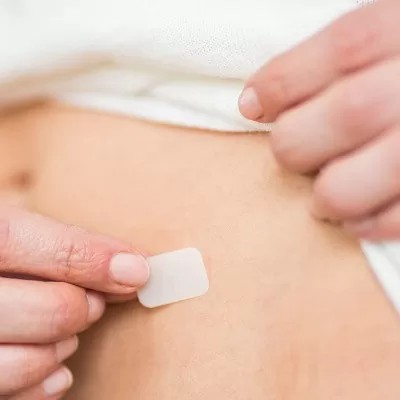Hormonal Replacement Therapy (HRT) is a medical treatment designed to alleviate symptoms associated with hormonal imbalances in the body, particularly during menopause for women and andropause for men. Hormonal Replacement Therapy in Dubai can significantly improve the quality of life for those experiencing debilitating symptoms due to hormonal fluctuations, and it is increasingly being recognized for its potential benefits in treating various health conditions.
Understanding Hormonal Changes
Hormones are chemical messengers that play a crucial role in regulating numerous bodily functions, including metabolism, mood, reproduction, and overall health. As individuals age, hormone levels naturally decline, leading to a range of symptoms and health issues.
In women, menopause marks a significant decline in the production of estrogen and progesterone, typically occurring in their late 40s to early 50s. Symptoms of menopause can include hot flashes, night sweats, mood swings, vaginal dryness, and increased risk of osteoporosis and cardiovascular disease.
Men also experience hormonal changes, albeit more gradually, in a process often referred to as andropause. This involves a decline in testosterone levels, which can result in reduced libido, fatigue, mood changes, and decreased muscle mass.

Types of Hormonal Replacement Therapy
HRT can be categorized into two main types: systemic and local therapies.
Systemic Hormonal Replacement Therapy: This involves delivering hormones throughout the body and is often prescribed for women undergoing menopause. It can come in various forms, including:
Oral tablets: Taken daily, these are the most common form of HRT.
Transdermal patches: These patches are applied to the skin and release hormones into the bloodstream.
Gels and creams: These are applied directly to the skin and absorbed.
Injections: Administered periodically, these provide a more direct delivery method.
Implants: Small pellets are inserted under the skin, releasing hormones over time.
Local Hormonal Replacement Therapy: This is primarily used to address specific symptoms, particularly vaginal dryness or discomfort. Local HRT may include:
Vaginal creams: Applied directly to the vaginal area.
Vaginal rings: These release hormones locally and can be left in place for several weeks.
Benefits of HRT
HRT offers several potential benefits, especially for those suffering from symptoms of menopause or andropause. These benefits include:
Reduction of Hot Flashes and Night Sweats: Many women experience significant relief from these symptoms when using HRT, improving sleep quality and overall comfort.
Improved Mood and Cognitive Function: Hormonal changes can affect mood and cognitive abilities. HRT may help stabilize mood and enhance memory and concentration.
Increased Libido: For both men and women, HRT can help restore sexual desire and function, improving overall sexual health.
Bone Health: HRT can help prevent bone loss in women, reducing the risk of osteoporosis and fractures.
Cardiovascular Protection: Some studies suggest that HRT may offer protective benefits against heart disease, particularly if started early in the menopausal transition.
Risks and Considerations
While HRT can provide significant benefits, it is not without risks. Potential side effects and complications may include:
Increased Risk of Blood Clots: Women taking oral HRT may have an increased risk of developing blood clots, particularly in the legs or lungs.
Breast Cancer: There is an ongoing debate about the relationship between HRT and breast cancer risk, especially for women taking combined estrogen and progestin therapy.
Heart Disease: While some studies suggest cardiovascular benefits, others indicate that HRT might increase the risk of heart disease in certain populations.
Stroke: Some research indicates a potential increase in stroke risk associated with HRT.
Because of these risks, it is essential for individuals considering HRT to consult with their healthcare providers. A thorough evaluation of personal and family medical histories, as well as a discussion of potential risks and benefits, should guide the decision-making process.
Who Should Consider HRT?
HRT may be a suitable option for individuals experiencing moderate to severe symptoms related to hormonal changes, particularly when these symptoms negatively impact daily life. Women experiencing menopause-related symptoms and men with significantly low testosterone levels should discuss HRT with their healthcare providers.
Additionally, individuals with a family history of hormone-sensitive cancers or cardiovascular diseases may need to explore alternative treatment options or closely monitor their health while on HRT.
Conclusion
Hormonal Replacement Therapy represents a powerful tool for managing the symptoms of hormonal imbalances associated with aging. By restoring hormonal levels, HRT can significantly enhance the quality of life for many individuals facing discomfort due to menopause or andropause. However, it is essential to weigh the benefits against potential risks and engage in open discussions with healthcare professionals to determine the most appropriate course of action. Ultimately, the goal is to achieve optimal health and well-being during the natural aging process.
